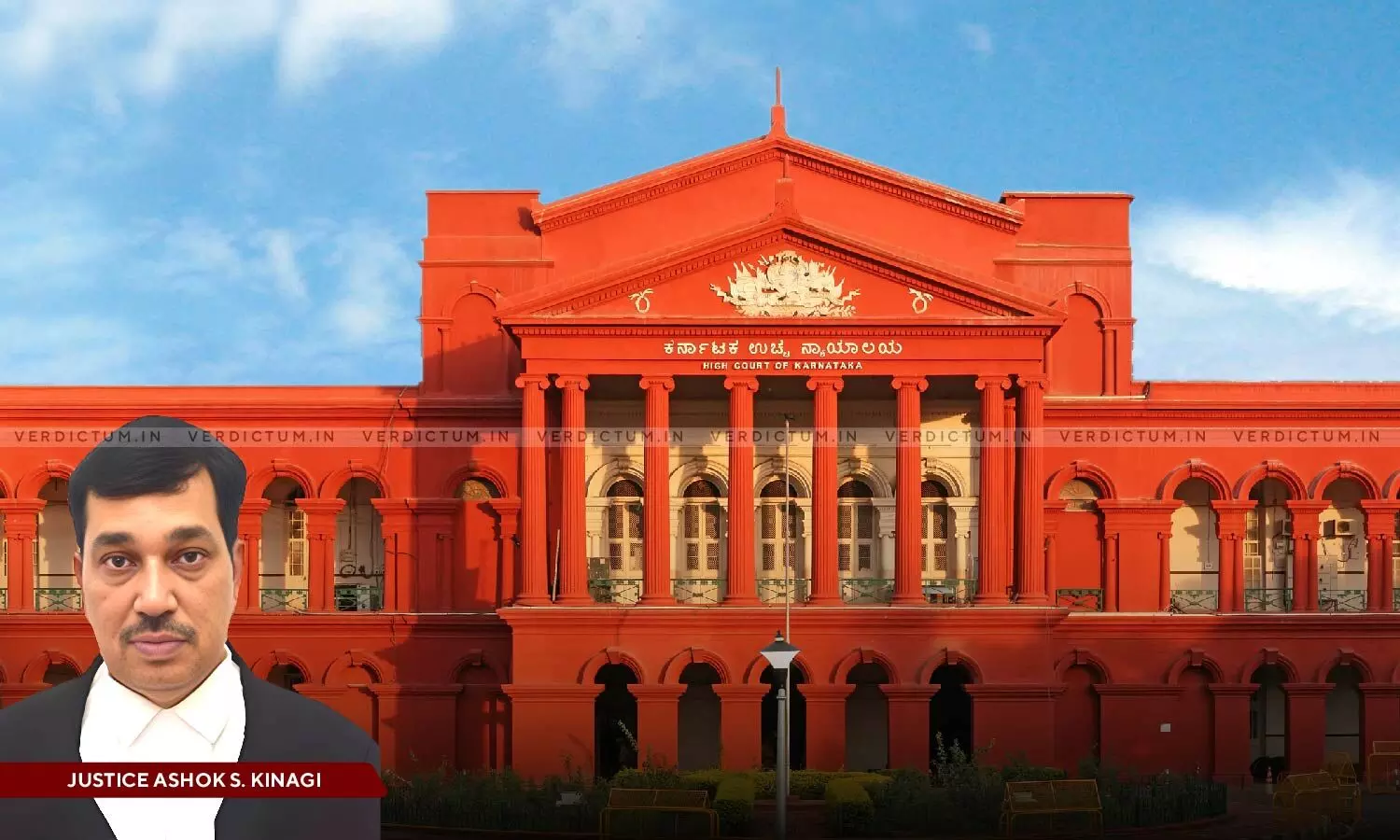
Agreement For Sale Of Property Which Is Hit By Prohibition On Transfer U/S 61 Karnataka Land Reforms Act Will Be Invalid: Karnataka HC
 |
|The Karnataka High Court has observed that an agreement for the sale of property which is hit by Section 61(1) of the Karnataka Land Reforms Act, 1961 is invalid.
A second appeal was filed under Section 100 of the CPC assailing judgment passed by a District Judge wherein the first Appellate Court granted the relief of specific performance of the contract. The Appellant was the defendant and the Respondent was the Plaintiff.
The Bench of Justice Ashok S Kinagi observed, “Thus, the agreement executed in between plaintiff and defendant is hit by section 61 (1) of the Karnataka Land Reforms Act, 1961 and the said agreement of sale is invalid. The First appellate Court without examining the said aspect has proceeded to pass the impugned judgement. The judgments relied upon by the learned counsel for the plaintiff are not applicable to the present case on hand. The defendant has not challenged issue Nos.1 and 2 nor filed any cross objection or cross appeal. The impugned judgment passed by the first Appellate Court is contrary to the law laid down by the Hon’ble Apex Court in the case of SMT. NARAYANAMMA AND ANOTHER (referred supra). In view of the above discussion, I answer substantial question of law No.1 in the negative and No.2 in the affirmative.”
Advocate Amit Deshpande appeared for the Appellants whereas Advocate Hemavathi A.T. appeared for the Respondents.
The Appellant-defendant and the Respondent-plaintiff agreed to sell the suit property of the Appellant-defendant’s property for consideration of Rs. 28,000/-. The Respondent-plaintiff paid the entire consideration which the Appellant-Defendant acknowledged. There was a prohibition for alienating the suit property till the expiry of 15 years by the land tribunal and it was agreed that the Appellant-defendant would execute the registered sale deed after the expiry of the prohibition clause. However, the Appellant-defendant kept on postponing the registered sale deed. The plaintiff was/is ready and willing to perform her part of the contract, but the defendant was not ready to perform his part of the contract and committed the breach of contract.
The trial court partly ordered the suit in favour of the Respondnet-plaintiff but prayer for specific performance of the contract was dismissed. Aggrieved, the Respondent-plaintiff preferred an appeal, and the First Appellate Court set aside the judgment passed by the trial court and directed the Appellant-defendant to execute the register sale deed.
The Court raised two questions of law in the matter i.e. 1) Whether the first Appellate Court was justified in granting the relief of specific performance of contract when the agreement of sale was completely prohibited for 15 years from the date of grant under Section 61 of the Karnataka Land Reforms Act, 1961? and 2) Whether the judgment and decree passed by the trial Court is contrary to the law laid down by the Apex Court in the case of Smt. Narayanamma and Anr. Etc. vs. Govindappa (2019)?
The Court held, “The said agreement was executed within fifteen years from the date of issuance of date of certificate of registration . Thus it could be seen that the transaction is nothing short of transfer of property under Section 61 of Land Reforms Act, there is a complete prohibition on such a transfer for a period of 15 years from the date of grant under Section 61(1) of the Reforms Act begins with a non-obstante clause, thus it is clear that the unambiguous legislative intent is that no such transfer would be permitted for a period of 15 years from the date of grant. Undisputedly, even according to the plaintiff, the grant is of the year 1980, as such, the transfer in question in the year 1996 is beyond any doubt within the prohibited period of 15 years. Subsection (3) of Section 61 of the Reforms Act makes the legislative intent very clear. It provides, that any transfer in violation of subsection (1) shall be invalid and it also provides for the consequence for such invalid transaction.”
Accordingly, the Court allowed the appeal.
Cause Title: Sri T Annayappa and Ors. v. Smt Chinnamma and Ors. (Neutral Citation: 2024:KHC:13771)
Appearances:
Appellants: Advocate Amit Deshpande
Respondents: Advocates Hemavathi A.T. and Chintan Chinnappa.